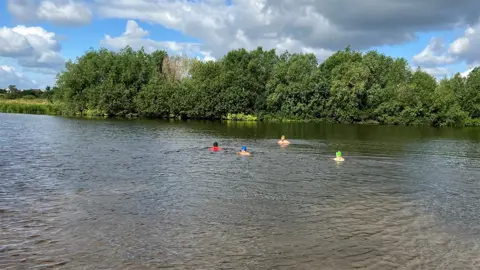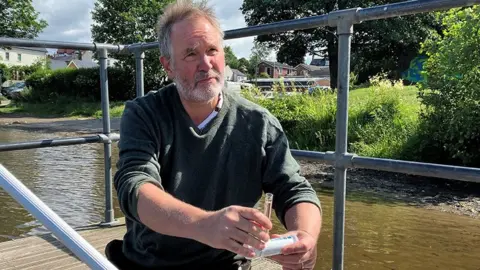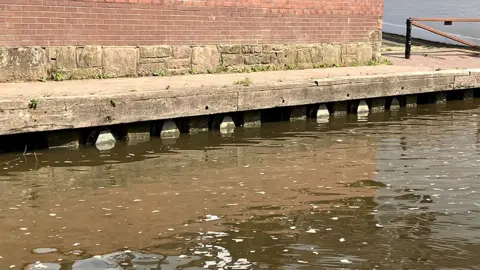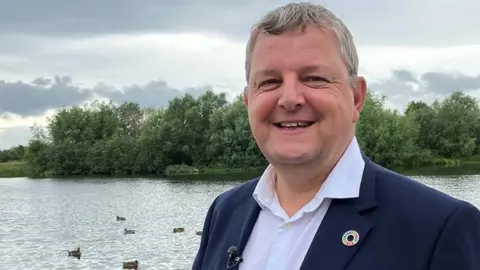Sewage in rivers: Citizen scientists join campaign for cleaner waterways
 BBC
BBCA recent statistic which suggested just 14% of the country's rivers were classed as healthy was, to many, as surprising as it was shocking.
The water firms have said only 4% of pollution is sewage, but the discharging of waste has prompted a national outcry and led to legal action over alleged underreporting of pollution and overcharging of customers.
In England's North West, campaign groups have sprung up to try and protect local rivers and local "citizen scientists" have been testing water quality.
The River Dee, which flows through Chester, has always been popular with swimmers, but sewage being pumped into the water for a total of 2,000 hours in 2021 left a bitter taste.

Barry Johnson, who takes a morning dip in the waterway, said he wants clarity on when it is safe - or not - to swim in the river.
He has asked Welsh Water, which discharges into the Dee, for more real time data, but said it has not been forthcoming.
He said a campaigning charity had added the river to a map that shows when water firms open storm overflows, letting sewage flow out, but the best way to find out what was in the water was to test it himself.
Every few days, he takes water samples at three different sites and sends them to a lab for better analysis.
"So far we've had two sets of testing done on the river," he said.
"The first day was a sunny day and it hadn't rained for a long time and the water was incredibly good.
"When I tested again at the city centre an hour after the rain had been falling, the sewers had opened and the water went to catastrophically bad."

Discharging sewage into rivers is not a recent development.
The legal practice has been used for years and the water firms have said there is no alternative, because of the state of the sewers.
Built by the Victorians, the network combines sewage and rainfall in the same pipes and when it rains heavily, the system cannot cope.
The firms said the sewage that was discharged was always diluted with rainwater, so was not pure.
At the Eccleston Ferry area of the River Dee, Happy Chilly Dippers group member Jazmin Seddon said she did not feel reassured by that.
"There's quite often foul smells and I've had a dodgy tummy once or twice," she said.

Welsh Water has a total of 2,300 storm overflows in its area.
The firm's wastewater service managing director Steve Wilson said the overflows were "causing around 10% of the problem" in the river, which was an issue with phosphorus.
A company representative said about 30% of phosphorus was coming from sewage treatment works discharges and between 40% and 50% came from agriculture and land management.
Campaign group The River Dee Trust said its own modelling indicated more than half of the phosphorus pollution was from storm overflows and water treatment works.
Welsh Water has committed to putting in a separate system in the city of Chester, so rainwater enters a different pipe to sewage, but it will take 10 years to complete and cost an estimated £96m.
It said it was also starting a real time overflows warning system in 184 areas in 2024.

Why not follow BBC North West on Facebook, Twitter and Instagram? You can also send story ideas to [email protected]
